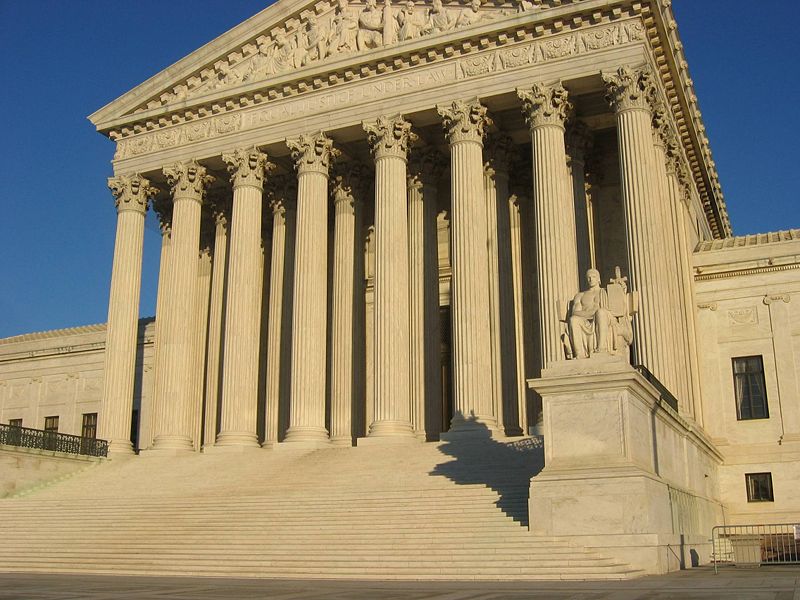Tech Companies Urge SCOTUS To Protect Location Data
Where do you take your phone? If you're anything like us, the answer is probably "everywhere." The doctor's office, the grocery store, the movie theater, and basically anywhere else you go, your phone is probably with you. Because your phone is always with you, and because many services rely on location information, chances are good that a detailed history of your goings-on is sitting in a bunch of servers who-knows-where. Microsoft, Google, and other tech companies have asked the Supreme Court to make sure police need a warrant to access that history.
The companies made their position clear in an amicus brief filed on August 14. The brief was submitted in support of the American Civil Liberties Union (ACLU) and its efforts to defend a man whose location history was obtained by police without a warrant. Police were able to use this information, which spanned across several months, to convict the man of a robbery. Now the ACLU wants the Supreme Court to say that location data collected by cellphones has the same Fourth Amendment protections as equally sensitive information gathered via other means.
In their filing, the companies said they "believe the Court should refine the application of certain Fourth Amendment doctrines to ensure that the law realistically engages with Internet-based technologies and with people's expectations of privacy in their digital data." Put another way: They want Fourth Amendment protections to keep pace with changing technologies so people don't have to worry about their data being handed over to police without a warrant. How the data is generated and collected doesn't matter as much as what it describes and when police can access it.
Tech companies aren't the only ones supporting the ACLU in this case. The organization said that advocacy groups such as the Electronic Frontier Foundation, the Cato Institute, and the Electronic Privacy Information Center (EPIC) have expressed their support. The ACLU said in a blog post:
'The number and variety of organizations and experts filing represent the widespread recognition that your cell phone’s location history is your own business, and the government needs to have a good reason to get its hands on it,' said ACLU attorney Nathan Freed Wessler. 'In particular, the tech firms are sending a very clear message that the law needs to catch up with the technology that is now an integral part of our everyday lives.'
You can find out more about the ACLU's arguments in the opening brief it filed with the Supreme Court last week. The organization said this case will be heard in the fall.
Here's the list of tech companies that signed off on the amicus brief:
Get Tom's Hardware's best news and in-depth reviews, straight to your inbox.
- Airbnb
- Apple
- Cisco
- Dropbox
- Evernote
- Microsoft
- Mozilla
- Nest Labs
- Oath (formerly AOL, now a Verizon subsidiary)
- Snap
- Verizon

Nathaniel Mott is a freelance news and features writer for Tom's Hardware US, covering breaking news, security, and the silliest aspects of the tech industry.
-
kenprevo Interesting that AT&T isn't signing. Of course they rent an entire floor of their SF offices to Federal data collectors.Reply
